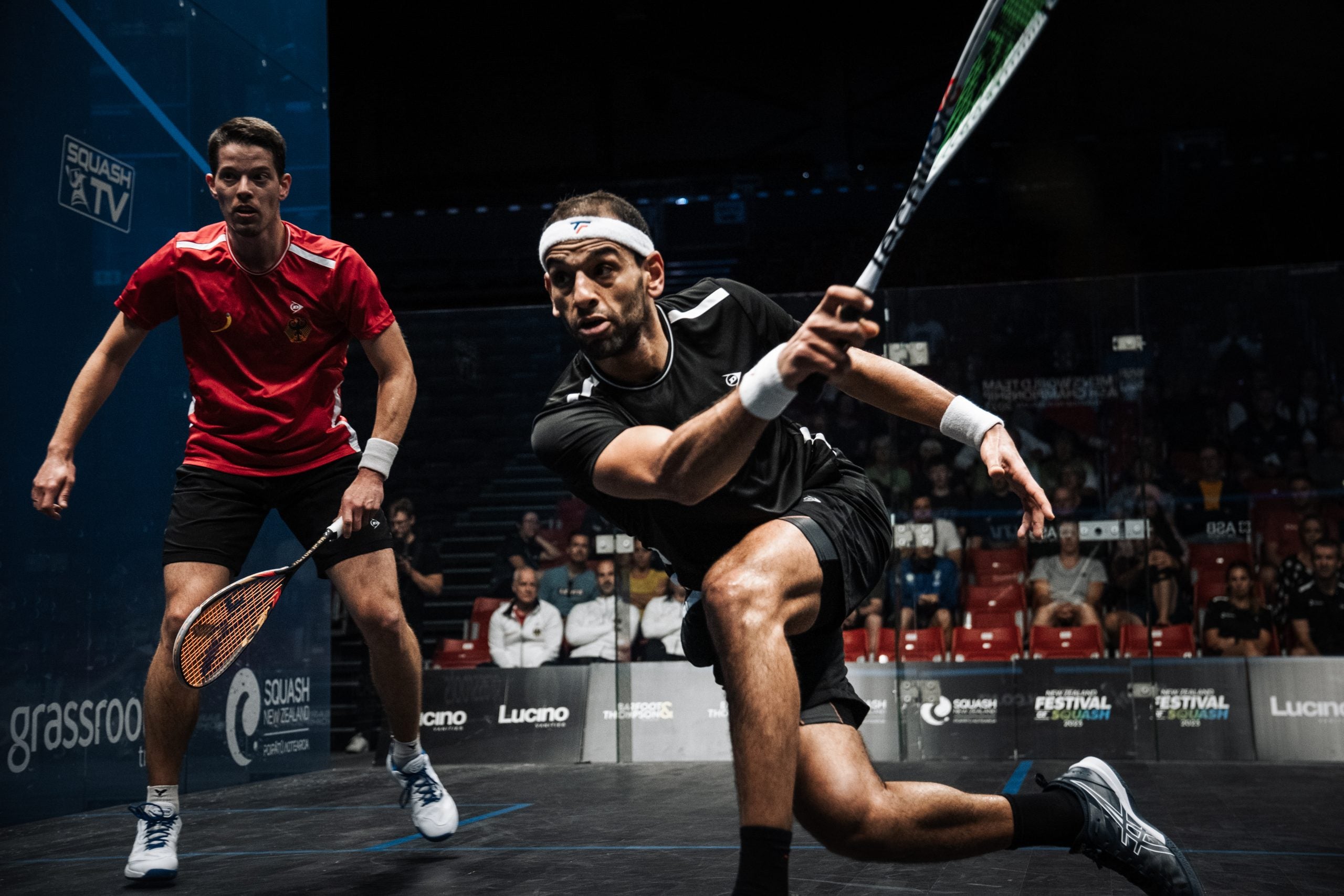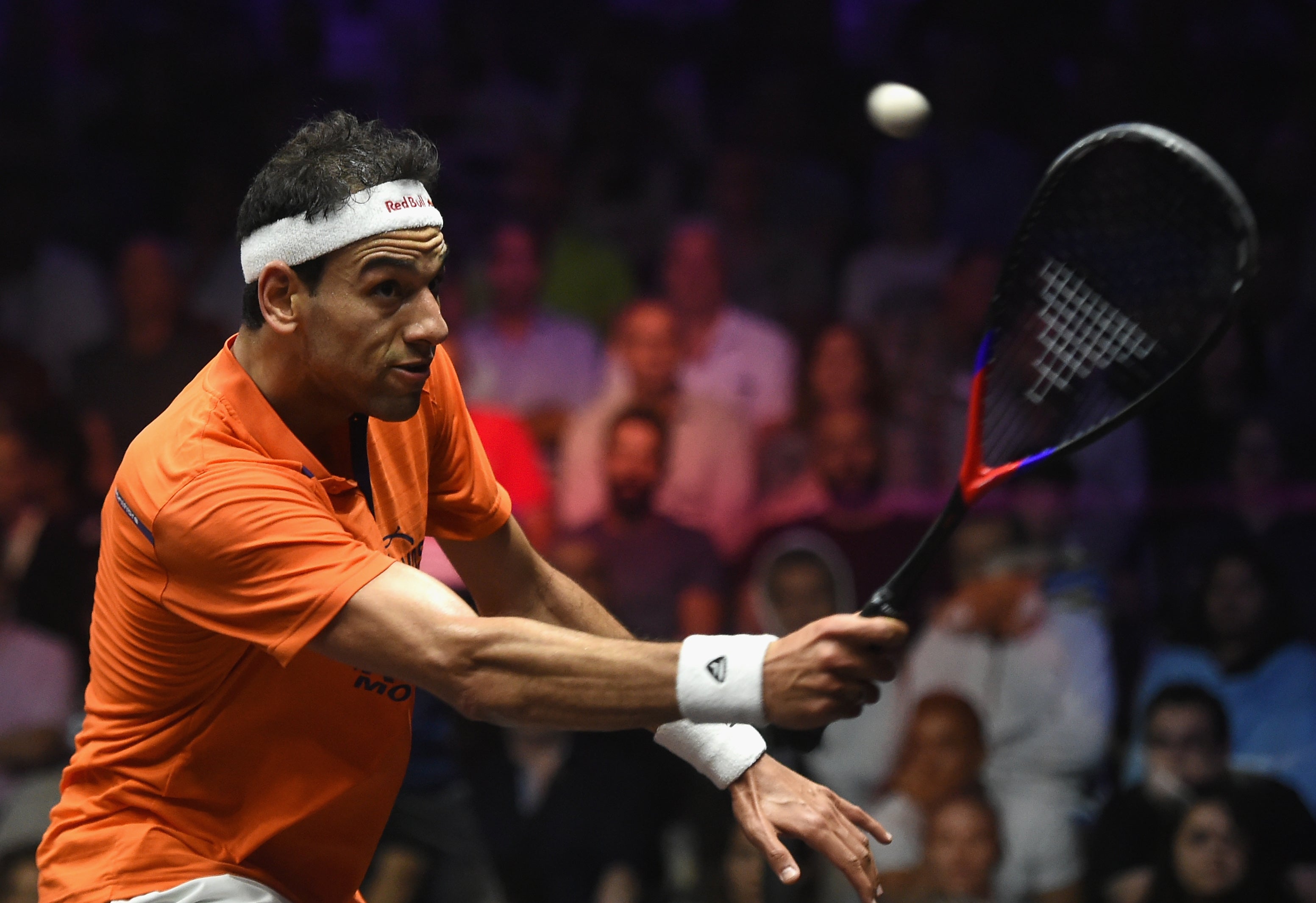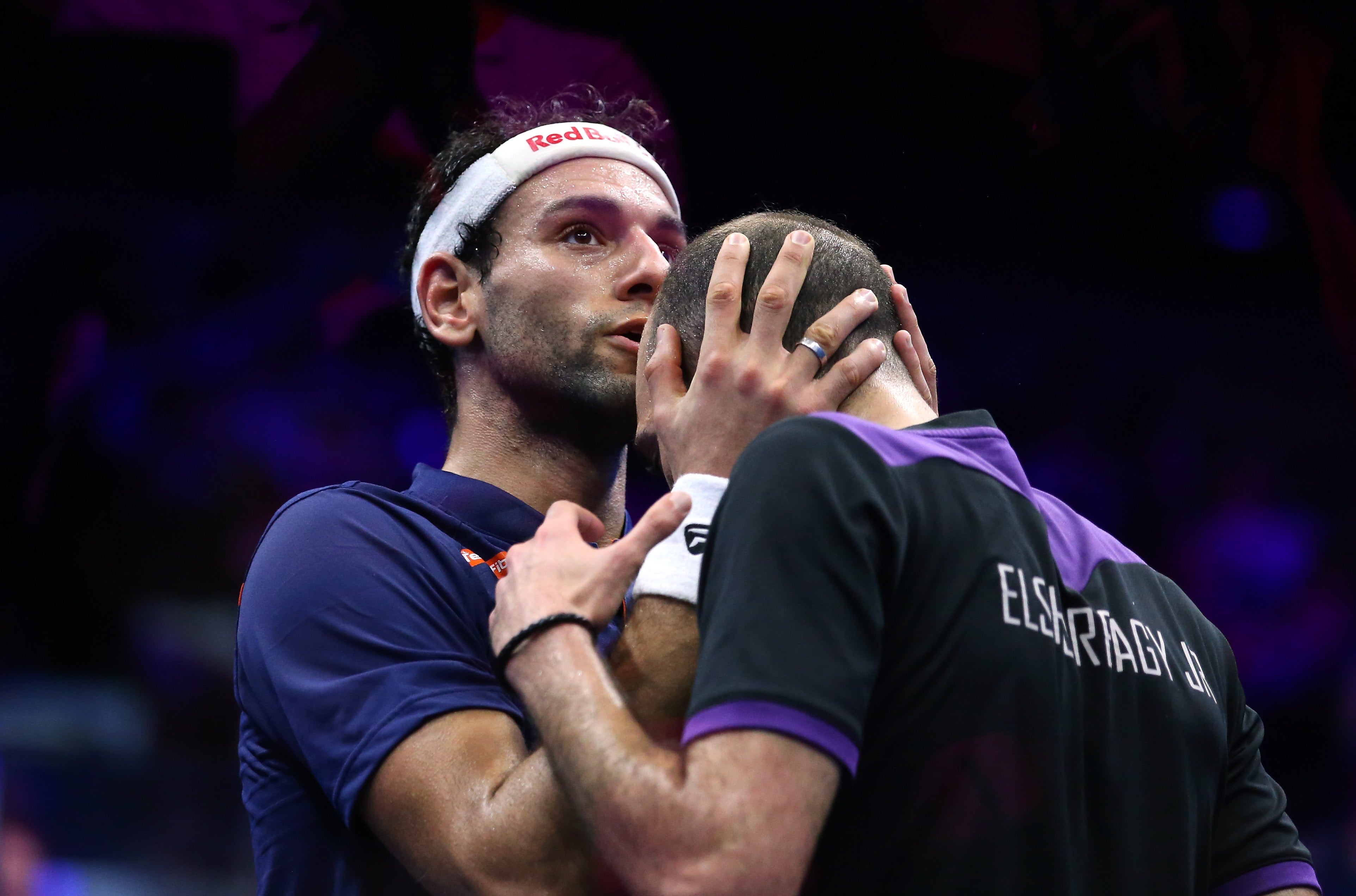Meet the brightest British sport star you’ve never heard of (and his equally brilliant brother)
Mohamed ElShorbagy and his younger sibling Marwan are among the most supremely gifted squash players in the world today. As their long-overlooked sport gears up for its first ever outing at the Olympics in 2028, Ben Bloom hears the remarkable story of how the Egypt-born duo are primed to take to the court to do battle… for Team GB


To be fair to Mohamed ElShorbagy, it was my mistake. Purely by virtue of speaking to his younger brother Marwan first, when it came to asking about Mohamed’s further education, the question was posed as to whether he “also” studied at Bristol’s University of the West of England.
“[Marwan] studied there like me, you mean?” replies Mohamed sternly. “Everything he has done in his life, he followed me.”
Only after a moment’s pause does he burst into laughter. “I’m kidding,” he adds. The ruthlessness he has employed to great success in his career has fraternal limits.
ElShorbagy is the British sports star there is a strong chance you may never have heard of, with good reason.
His sport – squash – has become accustomed to operating below the radar, habitually omitted from the sporting top table of the Olympics and largely ignored by mainstream media.
Then there is the fact that, for the vast majority of the 689 consecutive weeks he has spent inside the world’s top 10, he did so while representing his native Egypt.
But all of that could well change if he achieves his goal of competing for Team GB at the Los Angeles 2028 Games, where squash will finally make its Olympic debut.
Following in the footsteps of the likes of Peter Nicol, James Willstrop and Nick Matthew, Mohamed is the latest man tasked with shouldering the burden of English (or British) squash hopes.
“England, as a squash nation, cannot accept anything other than being at the top,” he says. “We owe the great English players before us effort.”
It was in June 2022 that Mohamed made the decision to switch allegiance from Egypt to England and – befitting his earlier joke – 13 months later his brother Marwan followed suit. Between them, they have won 62 Professional Squash Association titles and memorably contested the 2017 World Championships final in Manchester, in which Mohamed prevailed.
England, as a squash nation, cannot accept anything other than being at the top. We owe the great English players before us effort
They are currently ranked world No 6 (Mohamed) and No 10 (Marwan). Without them, England would have no player in the world’s top 20.
The unconventional journey to what they hope will end in becoming GB’s first male squash players would never have materialised without Mohamed’s adolescent eagerness in Alexandria, Egypt – the city in which the brothers were born.
Having been crowned Under-15 champion at the 2006 British Open – the sport’s most prestigious tournament alongside the World Championships – Mohamed boldly approached English squash player Joey Barrington at a tournament in what was then his hometown and asked if he might be able to practise with him sometime.
Joey had a superior offer: his father, the squash legend Jonah Barrington, was coaching at the esteemed Millfield School in Somerset and would probably be able to arrange a scholarship to study and board there. Within a week, Mohamed had moved more than 3,000 miles from home.
“My whole life changed,” he says. “At 15 you don’t really know what’s good for you. Coming from Egypt, the culture there is to have your parents very involved in your life. It was a big decision and risky, but I think it paid off.”
A year later, Marwan, two and a half years his junior, followed his path, and the brothers began a love affair with the West Country that continues to this day, with Bristol as their home.

When Mohamed, and then Marwan, first floated the idea of switching allegiance to the country that had long been their residence, England Squash head coach David Campion jumped at the idea. Matthew’s retirement and Willstrop’s paring back of commitments had left a notable void at the top end of English men’s squash. The ElShorbagy brothers were ideally placed to occupy it.
“We knew we were entering a lean spell,” says Campion. “It’s unrealistic just to expect, when you’ve had two world No 1s, to produce another one in the immediate cycle that follows.
“Mohamed and Marwan are very special players and it has filled that gap. But that wasn’t the reason for it. We just wanted to support them.”
The decision was not without controversy. Egypt are currently the powerhouse nation in global squash, with 10 of the world’s top 20 men and women representing the country. For some time, Mohamed was the best of the bunch with Marwan closely followed behind. But the fit never felt quite right for the brothers, Mohamed in particular.
Despite his exploits, Mohamed had not represented his birth country at a team event since 2011. He claimed he was unsupported and unloved by the Egyptian federation, even during the 51 weeks he spent as world No 1.
His nationality change was greeted with predictable anger from some pockets of Egypt, with one newspaper accusing him of treason. Others were more supportive, directing their criticism at Egypt’s sporting authorities for neglecting the talent at their disposal.

“People knew about the politics I was going through,” says Mohamed, who prefers not to revisit the particulars. “My story as an athlete is very similar to a lot of athletes in different sports in Egypt.
“I wanted to be surrounded by people who would support me no matter what and play for a country that took care of me all my life. I’ve been trained by British coaches almost all my life.
“England Squash helped me a lot to stay in England, with a visa and paperwork, and they never expected anything back. When you have people who support you in this way and don’t expect anything back from you, you know they are the people you want to play for.”
Although there was no big falling out on his part, Marwan felt the same about his adopted homeland. “I’ve lived in England for pretty much all my life and I felt like I wanted to give back,” he says. “The country has given me so much. I have nothing in Egypt apart from my family.
People knew about the politics I was going through. My story as an athlete is very similar to a lot of athletes in different sports in Egypt
“For the people who criticise it, maybe they could look at it in terms of what we can give the next generation.”
Campion agrees, insisting the brothers’ presence around the national set-up is “priceless” for younger players. With performance targets in place to justify England Squash’s funding levels, they should also ensure money keeps coming in, which “helps everybody else”.
“The other thing, if anyone says they are pushing players out, is that they have every right to be here,” says Campion. “They are English. They have been here all their adult lives. Governments set their own criteria for what citizenship looks like, not us.
“You can’t discriminate and pick and choose. If they are eligible, we select them.”
Last December, the brothers competed together on a national team for the first time in their professional careers, proudly donning England’s red shirt at the World Team Championships. Ironically, they came up against Egypt in the final, who triumphed to claim their third successive title.

Back when they opted to pledge allegiance to England, they did so with the 2026 Commonwealth Games as the biggest target on the horizon. With that competition’s future wholly uncertain after Victoria’s withdrawal as host, it has since been surpassed by the groundbreaking news last October that squash will make its Olympic debut in 2028.
Aged 33 (Mohamed) and 31 (Marwan), both players admit they had been uncertain to continue that long into the twilight years of their careers. But the lure of an opportunity to make squash history means previous plans have been torn up and replaced with new ones that end no sooner than four years’ time.
“To be honest, I gave up on squash ever being in the Olympics a few years ago,” says Marwan. “I thought that if it was to happen it wouldn’t be in my time.
“The news was a big surprise but we were all so happy. It changes everything for us as a sport. I just want to go there and have that experience. If I did it would be a dream come true.”
The battle now will be to keep hold of their places in the world top 10 for long enough to see off any charge from younger players to usurp them – a tricky balancing act given their stated aim to help the next generation of English squash players to new heights.
“Maybe I will help the 10- and 11-year-olds, not the 17- or 18-year-olds,” jokes Marwan. The brothers are not done yet, and now it is England’s turn to benefit.
Join our commenting forum
Join thought-provoking conversations, follow other Independent readers and see their replies
Comments

Bookmark popover
Removed from bookmarks